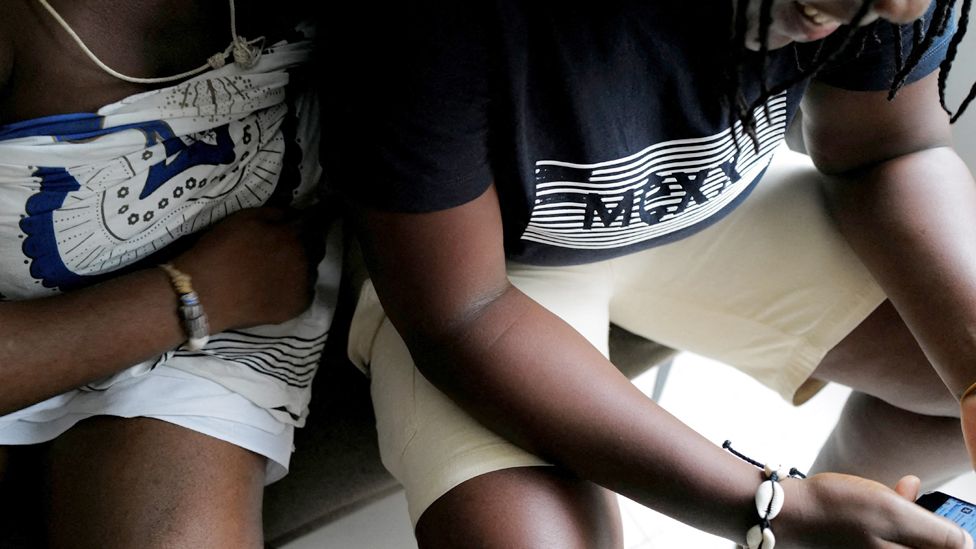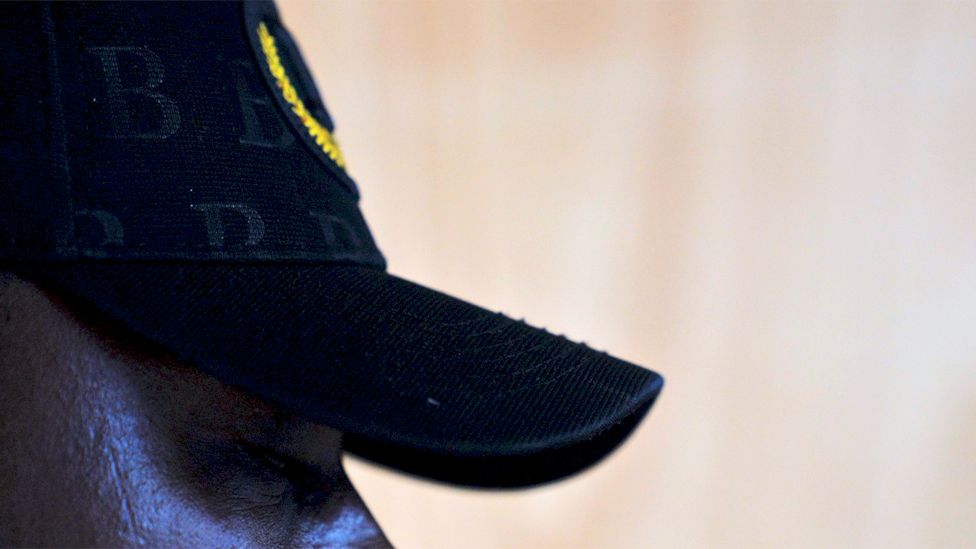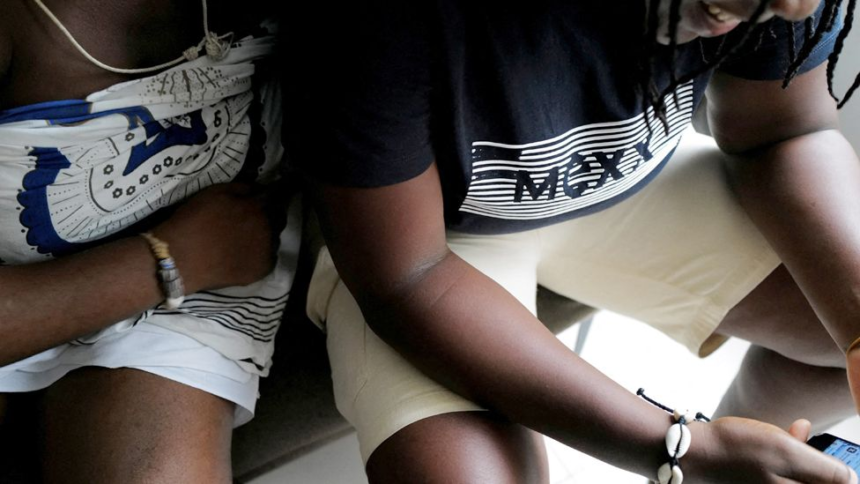Homophobia is not uncommon in Ghana, where gay sex is already against the law and carries a three-year prison sentence, but now the LGBTQ+ community is feeling terrorised.
A new bill, passed by MPs last week, will impose a jail term of up to three years for simply identifying as LGBTQ+ and five years for promoting their activities.
“A relative told me if this bill is passed, any chance he gets, he is going to poison me because I am an abomination to the family,” Mensah, whose name has been changed to protect his identity, tells the BBC.
Dressed in an all-black outfit, the young man in his late teens looks visibly terrified: “I am very worried anyone can snitch on me, even in my own neighbourhood. It’s going to be very hard to live here.”
He has been living for some time with sympathetic friends in Ghana’s capital, Accra, since falling out with his family.
It is not clear how large the LGBTQ+ community is in Ghana, a religious and traditionally conservative nation, but they tend to help each other out when one of them faces life as an outcast.
Mensah says when his mother discovered several years ago that he was attracted to boys, she started taking him to churches for prayers with the hope he would change.
“No friends except my church friends were allowed to see me. I had to study the Bible 24/7, pray and I would sit at the back anytime we went for meetings.”
He says he was practically shunned at home – the wider family would not talk to him and he found their stares unbearable.
“They felt I would have influence on my cousins and the little ones.”
Then in 2020, when the prayers and Bible studies were deemed to have failed, Mensah was excommunicated from his church for being gay.
His family were furious – and essentially outed him to their wider circle in an attempt to shame him.
“My family told a lot of my friends that this is who I am, I lost some good opportunities to further my education,” he says.
“It is very uncomfortable and very sad – these are people I grew up with, and now they don’t see the good in me, but they see me as an abomination.”
Mensah was eventually kicked out of the family home – and struggles to hold down a job.
Now the softly spoken young man says he spends most of his time indoors to avoid offending people’s sensibilities. He wants to be less visible, less seen, less heard.

Mensah’s experiences are not uncommon.
LGBT people are commonly referred to in the local Akan language as “kojo besia”, literally “man-woman”. They have always co-existed within Ghanaian communities, although there were occasional attacks.
These have become more common in recent years.
Kwame, who also requested his name be changed for his safety, is horrified by the passage of the anti-gay bill, saying it will legitimise homophobic attacks, something he has experienced himself.
“I am known to be gay where I live, so anybody that comes close to me – they feel like that person is also gay,” he tells the BBC about an attack he suffered about 10 years ago.
A male friend had visited and when stepping outside to wave him goodbye, some residents ganged up on them.
“They approached us, saying that we are gay and started attacking us. It wasn’t just one person, and they took our phones,” he says.
Kwame made an official report to the police, however after weeks of no action he had to live with the reality that he would get no justice.
Now his mere existence – if the bill is signed by the president – will be against the law.
In his late twenties, Kwame is studying fashion design – but has also faced discrimination in the workplace when someone told his boss about his sexuality.
His boss asked him to change his ways and then fired him when he refused. “I lost my job because I was gay.”

Both Kwame and Mensah are hoping the bill, which has been backed by both of Ghana’s two main political parties, will be stopped by a legal challenge.
A case has been filed at the Supreme Court and President Nana Akufo-Addo says he will wait for the outcome before taking action on the bill.
He has been at pains to assure the diplomatic community that Ghana is committed to upholding human rights.
The country’s finance ministry is worried about the possible repercussions, saying Ghana could lose a total of $3.8bn (£3bn) in World Bank funding over the next five to six years.
Ghana is suffering a major economic crisis and last year had a bailout from the International Monetary Fund (IMF).
The US, UK and human rights groups have condemned the bill, with the US in particular indicating that it would have a chilling effect on foreign investment to Ghana.
The West African nation is part of the trade agreement between Africa and the US – the African Growth and Opportunity Act (Agoa). Uganda was chucked out of the deal by the US after it passed a controversial anti-homosexuality law last year.
Kwame and Mensah are considering leaving Ghana as the situation has been so inflamed by politicians – the country feels like a more dangerous place for them.
“Where I am living is a very crowded area, so when your issue comes up everyone gets to find out, I’m actually scared. I will have to leave and go settle somewhere else,” he says.
Mensah agrees: “I feel like relocating from the country itself to any country which is safe for me to live in.
“I have to count my steps to make sure I don’t offend anyone. I have to live like a refugee in my own country.” – BBC
Stay informed with The Namibian – your source for credible journalism. Get in-depth reporting and opinions for only N$85 a month. Invest in journalism, invest in democracy –
Subscribe Now!



Leave a Reply